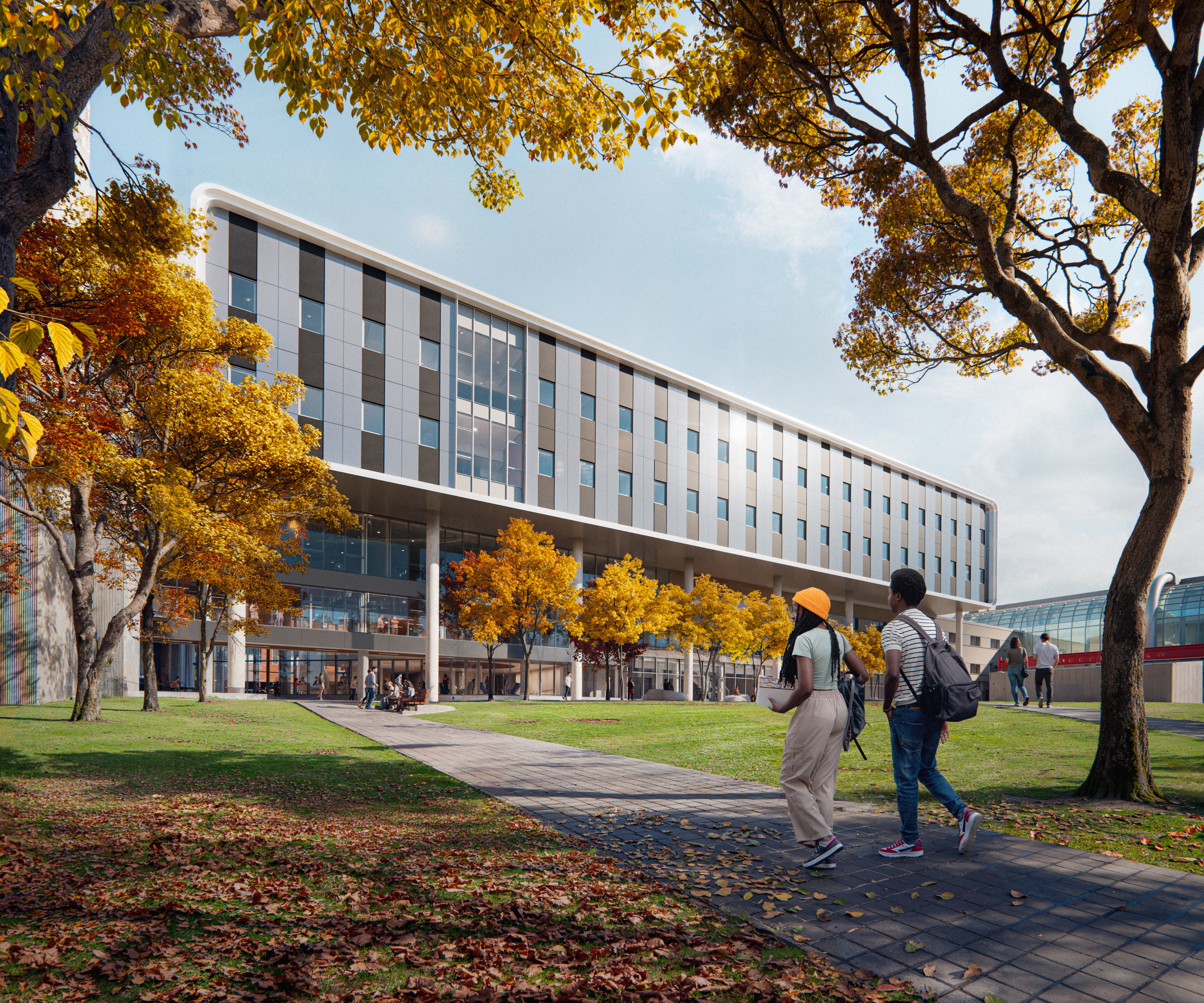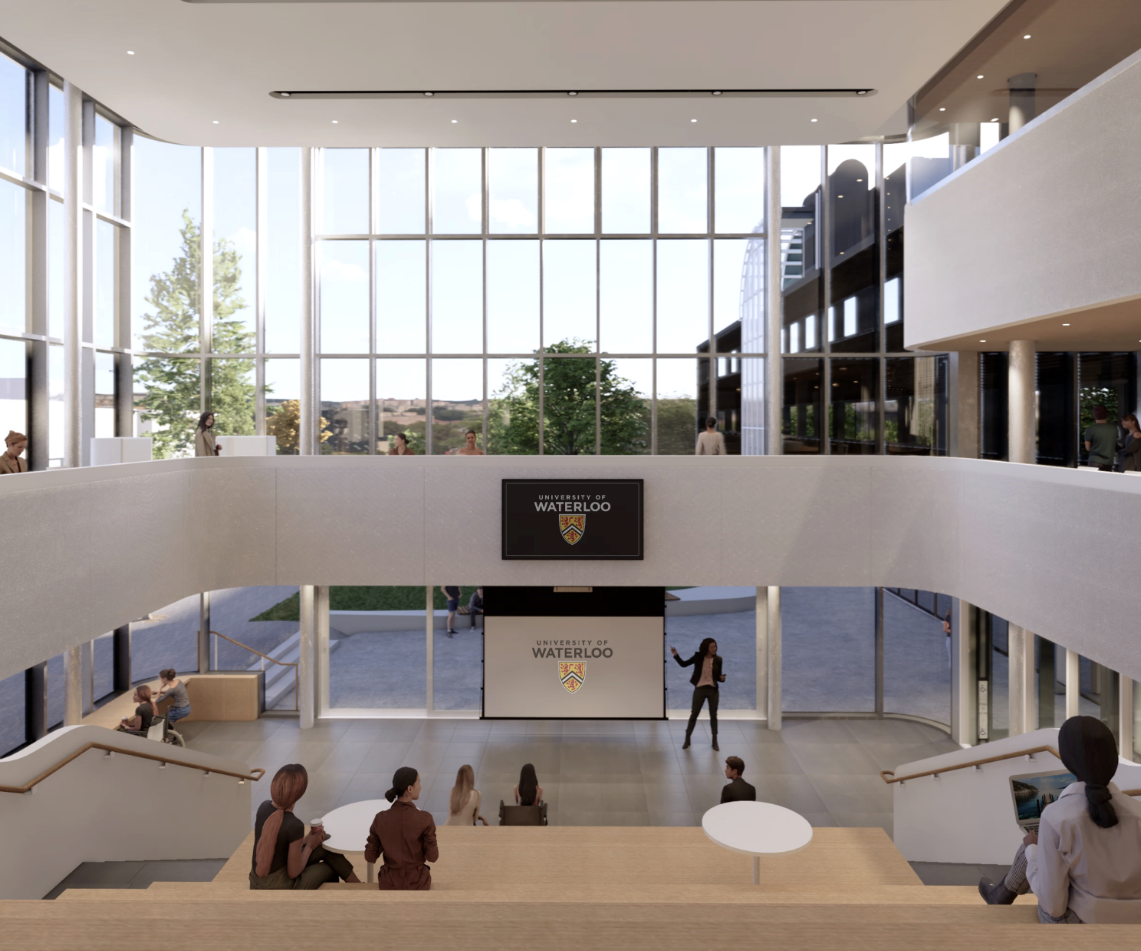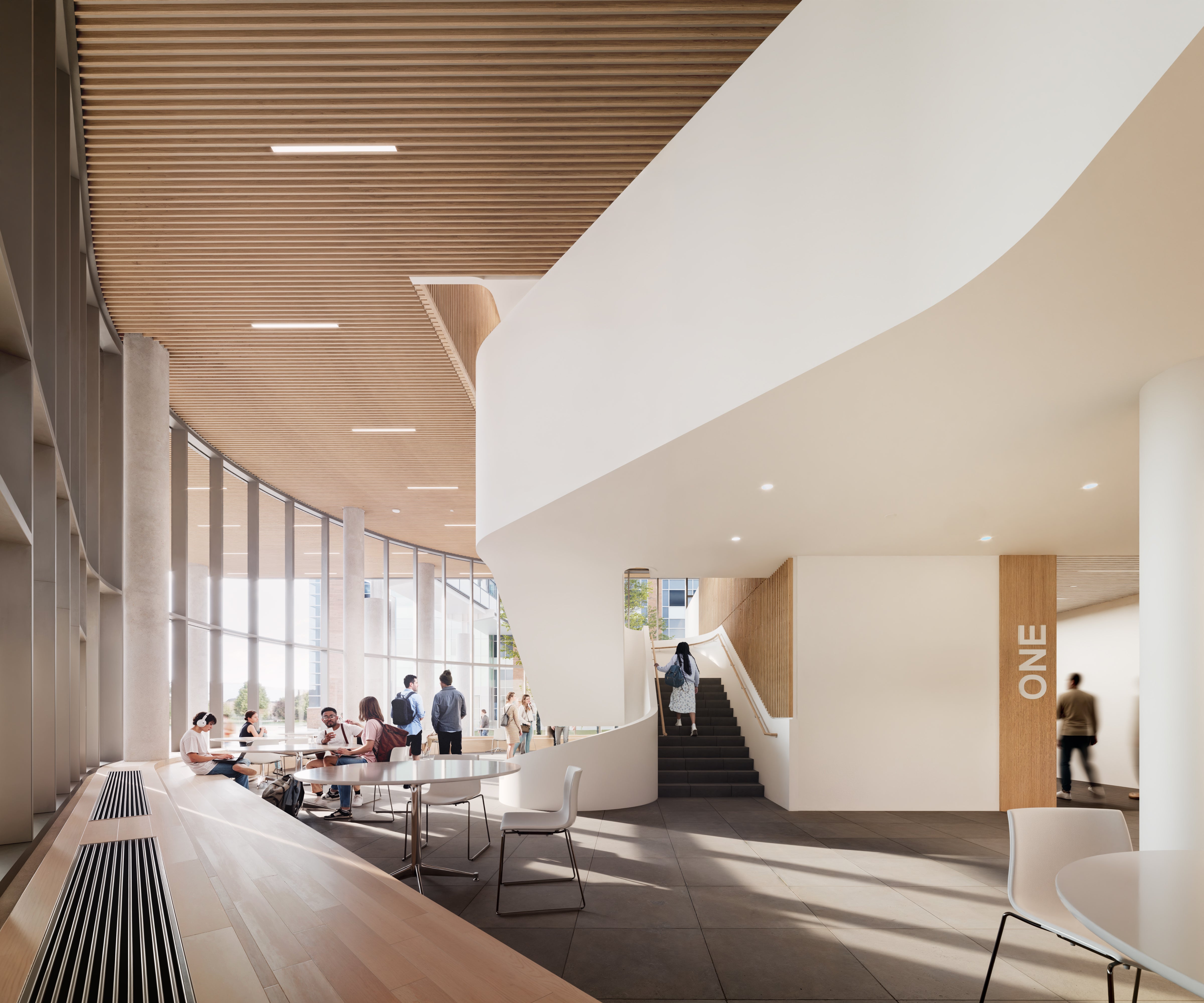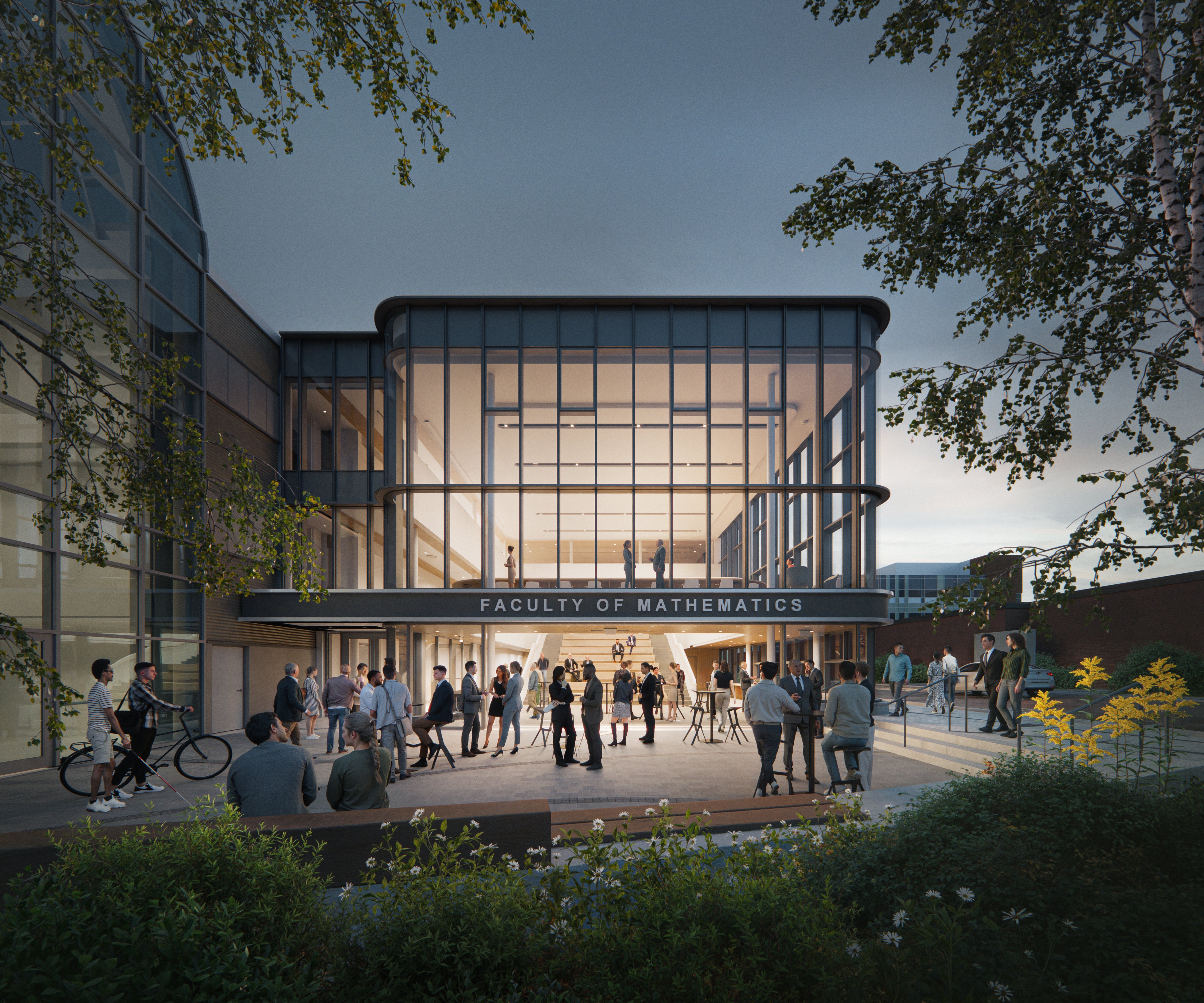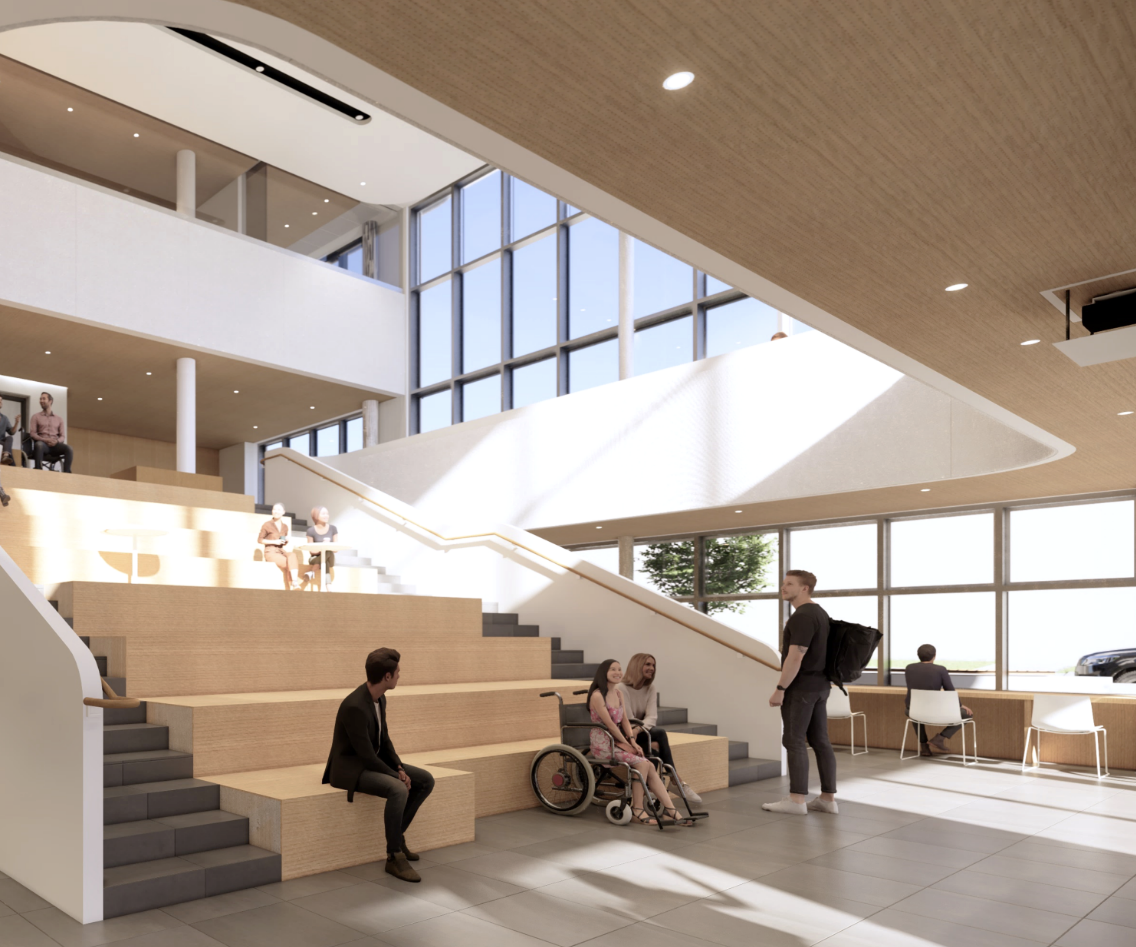A vibrant hub for research, teaching and entrepreneurship
The Faculty of Mathematics stands on the precipice of an exciting new era of growth, innovation and impact. Mathematics 4 (M4) makes this new era possible.
Take a look inside the new Mathematics 4 building at the University of Waterloo. Learn more about how this space will transform education, research and entrepreneurship in the Faculty of Mathematics by clicking on the spaces below.
Enrich Education
M4 will develop the data-fluent, entrepreneurial leaders of tomorrow with spaces that encourage experiential learning and collaboration.
If you're interested in making a gift to name one of these spaces, please email Alex Lippert at allippert@uwaterloo.ca.
Accelerate Research
M4 will accelerate innovation at the intersection of computer science, statistics and mathematics through cutting-edge labs, office space and technology.
If you're interested in making a gift to name one of these spaces, please email Alex Lippert at allippert@uwaterloo.ca.
Design Principles
While we look towards the future and design M4 to be an inclusive space, it is important to honour the traditions of peoples who have inhabited this land for generations. The building will be developed with a set of guiding design principles that will consider and respect Indigenous perspectives including:






